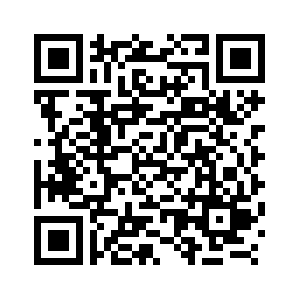MANILA, May 6 (Xinhua) -- Faced with pandemic restrictions, politicians in the Philippines are harnessing the power of social media to win the May 9 national and local elections, with drones and livestreaming becoming new features of campaign rallies across the archipelago.
Philippine political candidates used drones to take aerial images and videos to post on social media platforms to capture the public's attention.
Midway into the 90-day campaign period, the use of drones in political campaigns has intensified after a presidential candidate posted bird's-eye shots and videos of a mammoth crowd that showed up during a political campaign rally in Metro Manila.
The image and video of the massive Philippine political rally caught the attention of many, including international celebrities. American singer and songwriter Ariana Grande tweeted, "I could not believe this was real," when she saw a 16-second online video of people singing along to her famous song at a rally in the Philippines.
Indeed, social media has become integral to this year's political campaign.
Over 65.8 million Filipinos will troop to polling stations on May 9 to elect a new president, a new vice president, 12 of the 24-seat Senate, and members of the House of Representatives. Poll body data showed that over 18,000 national and local positions are up for grabs.
The upcoming elections will be the first to be held in the Southeast Asian country amid the global pandemic. Since the outbreak in 2020, the COVID-19 disease has infected over 3.68 million people and claimed the lives of over 60,000 in the Philippines.
The unprecedented pandemic prompted the Commission on Elections to impose strict campaign rules to quell the virus's spread. Actions that involve physical contact, including hugging and kissing on the campaign trail, are prohibited.
Unlike in previous elections, candidates this year relied more prominently on digital platforms to win votes and hire social media savvy advisers to woo the youth, which comprises the bulk of the total registered voters.
According to the poll body, 37 million voters aged 18 to 41 comprise around 56 percent of the total voter population.
A survey showed that there were 89 million social media users in the Philippines in 2021, an increase of 22 percent from 2020. The number of social media users was equivalent to 80.7 percent of the total population in the country.
The Filipino internet user spends on average nearly four hours on social media every day, making social platforms the battleground for information and disinformation by rival political camps to gain attention.
Political strategists bombarded social media and mainstream media with dozens of photos and videos daily to challenge the pre-election survey results that were unfavored to their candidates.
Supporters of presidential candidates also outperformed each other, posting photos and videos of their preferred candidates on their social media accounts for their relatives and friends to follow.
Aries Arugay, a political science professor at the University of the Philippines, said the May 2022 national and local elections "will likely be shaped by social media."
In a recent article published by the Singapore-based ISEAS-Yusof Ishak Institute, Arugay said social media play a prominent role in candidates' campaign strategy.
"Candidates have relied more on social media for their campaigns, and voters have tapped these applications as their source for news and other election-related information," the institute fellow said.
"While it remains doubtful that a candidate can win the presidency through a successful social media strategy alone, there is a realization that this type of technology is becoming an indispensable part of the contemporary electoral 'political machine,'" Arugay said.
The scholar added that election campaigns have also exhibited a more intense and varied use of social media to sow disinformation and fake news to either support or undermine certain candidates.
Arugay warned that these concerns can currently not be addressed, given the inadequate regulations and the absence of a specific law regulating social media and its use in electoral campaigns in the Philippines. ■



